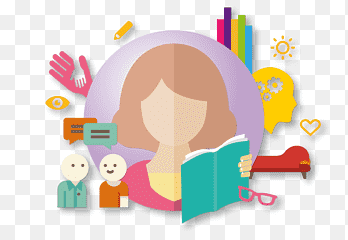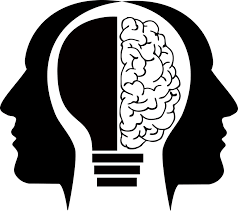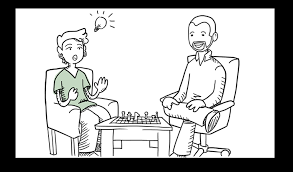Psychoeducation is an important tool in the treatment of mental health disorders. It is a process that includes a professional and the person who has mental health problems. They both work together to find information about mental health problems, treatments, and resources. The goal is to teach skills for coping with symptoms and improving quality of life. But how can you know if psychoeducation will work for you? This blog post will help provide information on whether or not psychoeducation is right for your needs.
Contents
- 1 What Is Psychoeducation?
- 2 Types Of Psychoeducation
- 2.1 Classroom-based
- 2.2 Individual counseling
- 2.3 Family Education
- 2.4 Self-Help Education
- 2.5 What Is The Purpose Of Psychoeducation?
- 2.6 Psychoeducation In Social Work
- 2.7 When Should Psychoeducation Be Used?
- 2.8 How Can Psychoeducation Help?
- 2.9 Benefits Of Psychoeducation
- 2.10 Drawbacks Of Psychoeducation
- 3 Conclusion
What Is Psychoeducation?
Psychoeducation is a set of beliefs and ideas used to help others understand mental health disorders. It can also be called knowledge, awareness training, or understanding education.
The aim of psychoeducation is not for everyone with a disorder to become an expert. The goal is for people to have enough information about the condition so they don’t feel alone. They will know where to go when they need more information on certain topics specific to their situation.
Psychoeducation is a type of education that helps people understand and cope with mental health conditions. It includes information about the condition, its symptoms, how to manage it, and where to find help. Psychoeducation can be provided in groups or individual sessions.
Stages Of Psychoeducation
Psychoeducation usually includes the following stages:
- Awareness of mental illness: This is when people first hear about a condition and are introduced to it. They may have heard something in the news or from another person with an illness. Learning more can help them understand their own situation better, too.
- Understanding the impact of symptoms on daily life: Each person’s symptoms will vary because everyone is different. But knowing what they are will help the patient know what to do next. It might be helpful to do some research so that you know what kind of treatments might work best for the diagnosis and treatment plans. The information gathered during this time should also include coping strategies.
- knowledge of available treatments: The person should know all the options that are out there for treatment. They need to be able to talk with their doctor about any concerns they may have, too. What kind of therapy can help? How will medications work and why do people take them? During this stage, psychoeducation is important. This means when people find out what will happen in different therapies and medications.
- Applying new knowledge in daily life: This means knowing what to do when certain things happen, like at school or at home. You need to know how to cope with situations that might make you depressed or even mentally ill. It also includes learning more about coping strategies and self-care plans for these triggers as well as relapse prevention plans.
Types Of Psychoeducation
There are different types of psychoeducational to, and the most common ones are:
Classroom-based 
Classroom-based psychoeducation is a teaching model designed for delivering information to children and adolescents with Bipolar Disorder or related disorders. In classroom-based psychoeducation, people like teachers, social workers, nurses, and psychologists teach the curriculum to all students in a grade level. This involves generally 2 hours per week over 8 to 12 weeks. The information that is taught will vary depending on the age and development stage of each student. It also depends on what disorder (s) they have.
The main goal of classroom-based psychoeducation is for the child to understand that they have a disorder. The disorder affects their mood, thoughts, and behavior. In addition, psychoeducation also helps people learn skills like problem-solving, communication and coping.
Benefits
There is a growing body of evidence that suggests classroom-based psychoeducation can be beneficial for children and adolescents, For example, it has been:
- Shown to improve knowledge about the disorder (e.g., symptoms, treatment) as well as reduce the stigma associated with mental illness.
- Helpful to improve problem-solving skills, communication abilities, and coping strategies.
- Leading to better mental health outcomes, including decreased rates of hospitalization and improved quality of life.
Individual counseling 
In individual counseling, a therapist will work with one person for a long time. They will help that person learn about their mental illness and how to manage it. This type of therapy can help people who have a mental illness and just found out about it. For example, a new person might not know that they have a mental illness. This therapy can also help people who have had a mental illness for a long time.
During individual counseling of psychoeducational, the therapist will work with the client to create a personalized treatment plan. This plan will likely include both educational materials and therapeutic interventions. The therapist may help the client with their daily life.
Benefits
There are many benefits to individual counseling of psychoeducational:
- For starters, this type of therapy informed about their mental illness. They will learn about the causes of their condition, as well as the best ways to manage it. You may feel alone when you have a mental illness. This is helpful because you can talk to other people and get help.
- In addition, individual counseling of psychoeducation can help to improve communication between the client and their loved ones. The therapist can provide tools and resources that will help families to better understand the condition, as well as how they can best support their loved ones.
- Finally, this type of therapy can be helpful in reducing feelings of isolation and stigma. By learning more about their mental illness, clients can come to see themselves in a new light – as someone who is fighting ay can help people to feel better about themselves. This can be an important step on the road to recovery.
Family Education
The family is the first and most important educator of the child. Family education can help your family to understand your feelings and thoughts. It can also help you understand the feelings and thoughts of your children. It also helps families to develop healthy coping skills and problem-solving strategies.
Family education in psychoeducation can take many different forms, depending on the needs of the family. It may include individual therapy sessions for family members, group therapy sessions, or educational workshops.
Psychoeducation can help families to:
- Understand how their own thoughts, emotions, and behaviors are affecting their children
- Address any mental health concerns early on
- Learn healthy coping skills and problem-solving strategies
- Learn how to communicate with their children in age-appropriate ways
- Setting realistic expectations of children and providing opportunities for them to develop new skills
- Recognize signs of mental health conditions, such as autism spectrum disorder (ASD), depression, anxiety, or attention deficit hyperactivity disorder (ADHD)
Benefits
The benefits of family education in psychoeducation can be significant:
- Psychoeducation is often helpful for families.
- They can feel more connected and they can talk better. They also report feeling better equipped to deal with any mental health concerns that may arise.
- In addition, children who receive psychoeducation along with their families often show improved social skills and academic performance.
- They also are more likely to seek help for mental health concerns early on, which can lead to better outcomes.
Self-Help Education 
Self-help education is when the instructor makes assignments to guide students in their own academic development. In psychoeducational of, self-help education ranges from short-term assignments given regularly throughout the semester.
Some teachers ask students to do experiments that will help them to learn new things and test out their skills.
Many universities also encourage their students to participate in group sessions where the student can learn from others in various ways. These might include talking to other students in a classroom or doing homework together. There are usually instructors present who guide the sessions and ensure that learning is taking place.
Benefits
There are many benefits to self-help education when teaching psychoeducational classes:
- It gets students involved in the class and reinforces information they have learned previously.
- It also gives them opportunities to take an active role in their own development by taking on assignments that maybe even challenge them. This provides ample opportunity for personal growth while also increasing their knowledge of the subject matter.
- Students learn from one another in group settings, increasing the diversity of information and perspectives.
What Is The Purpose Of Psychoeducation?
The purpose of psychoeducation is to help individuals and families understand themselves, each other, and their experiences in a new light.
It can be very helpful for people who are struggling with mental health conditions or concerns like ASD, ADHD, depression, or anxiety.
Psychoeducation can help people make decisions about how to cope with their problems. It gives them the information they need about what is going on and teaches them new skills. It also makes it better when they know that they can get help and that there is nothing wrong with getting help.
People often report feeling grateful after receiving psychoeducational treatment because it helps them see things from an entirely different perspective. It is good for people. They can make sense of what might feel chaotic at times and it will give them hope for the future.
Psychoeducation In Social Work
- Psychoeducation in social work is a process that helps people understand their thoughts, feelings, and behaviors. It also teaches them new skills to cope with difficult situations.
- It can be used to help people who are struggling with mental health conditions like ASD, ADHD, depression, or anxiety.
- In social work, psychoeducation is often used along with other interventions like therapy or medication. Together they can provide people with the tools they need to improve their lives.
- The goals of psychoeducation in social work may vary depending on the person’s individual needs but typically include:
- Helping individuals recognize signs and symptoms of mental health concerns early on
- Teaching coping and problem-solving skills
- Encouraging communication within families about mental health
- Promoting self-care and resiliency
- Providing psychoeducation to social work students is an important way to prepare them for the challenges they will face when working with clients.
- It can help them understand their own personal experiences and give them compassion for the people they will be helping.
Goals Of Psychoeducation In Social Work
The goals may include:
- Helping individuals recognize signs and symptoms of mental health concerns early on.
- Teaching coping and problem-solving skills.
- Encouraging communication within families about mental health issues.
- Promoting self-care and resiliency.
Providing psychoeducation to social work students is important. It can help them understand their own personal experiences, give them compassion for people in similar situations. And it may make it easier for them to treat their future clients like family members because of these shared feelings.
When Should Psychoeducation Be Used?
Psychoeducation can be helpful in a variety of fields, such as:
- Psychoeducation is when a person or family is looking for information on mental health conditions. They want to learn new skills to help them deal with difficult situations, or they need support in deciding what treatment to get.
- It can be helpful for individuals of all ages and can be adapted to meet the specific needs of each person or family.
- There is no one-size-fits-all approach to psychoeducation but it is an effective way to gain new insights and skills.
When Should Psychoeducation NOT Be Used?
Psychoeducation should not be used when:
- Someone is in an acute mental health crisis and needs urgent care.
- They have refused treatment or do not want help.
- The family is unwilling or unable to participate in the sessions.
How Can Psychoeducation Help?
Psychoeducation can help people in a number of ways, such as it can:
- Help people understand their thoughts, feelings, and behaviors.
- Teach them new skills to cope with difficult situations.
- Can encourage communication within families about mental health.
- Can promote self-care and resiliency.
- Is an effective way to gain new insights and skills.
Benefits Of Psychoeducation
There are many benefits to using psychoeducation, such as:
- It can help people understand their thoughts, feelings, and behaviors in a new way. They will also learn how to cope with difficult situations instead of avoiding them or ignoring the problems that come up in life.
- It is good for families too because they can gain insights into mental health conditions together. This means that people know what to do if the person has symptoms again. This is good because then there are not as many questions about what happens next when things get tough.
- Finally, it helps social workers identify early warning signs which makes it easier for treatment plans. Later on when clients visit them at their office rather than having weeks go by before anyone notices any happening in behavior or moods at home.
Drawbacks Of Psychoeducation
There are a few drawbacks to psychoeducational, such as:
- It can be time-consuming and require a lot of effort from everyone involved.
- People may feel overwhelmed or confused by the new information they are receiving.
- The skills that people learn through psychoeducation need to be practiced regularly for them to be effective.
- Finally, psychoeducation is not enough to help people on its own because it has no direct effect on their thoughts, feelings, or behaviors.
- The skills that people learn through psychoeducation need to be practiced regularly for them to be effective in dealing with challenging situations.
- They will also need support over an extended period of time before they really start changing how they think about themselves and others around them too.
Conclusion
In this blog post, we explored the idea of psychoeducation and how it can be used to improve patient outcomes. Although scientists need to do more research before they know what methods of psychoeducational therapy are best, one thing is clear. Educating patients about their diagnosis has been shown in some studies to have a positive effect on reducing symptoms. We hope you found our discussion informative.
If you are looking for affordable Online Counseling MantraCare can help: Book a trial therapy session











